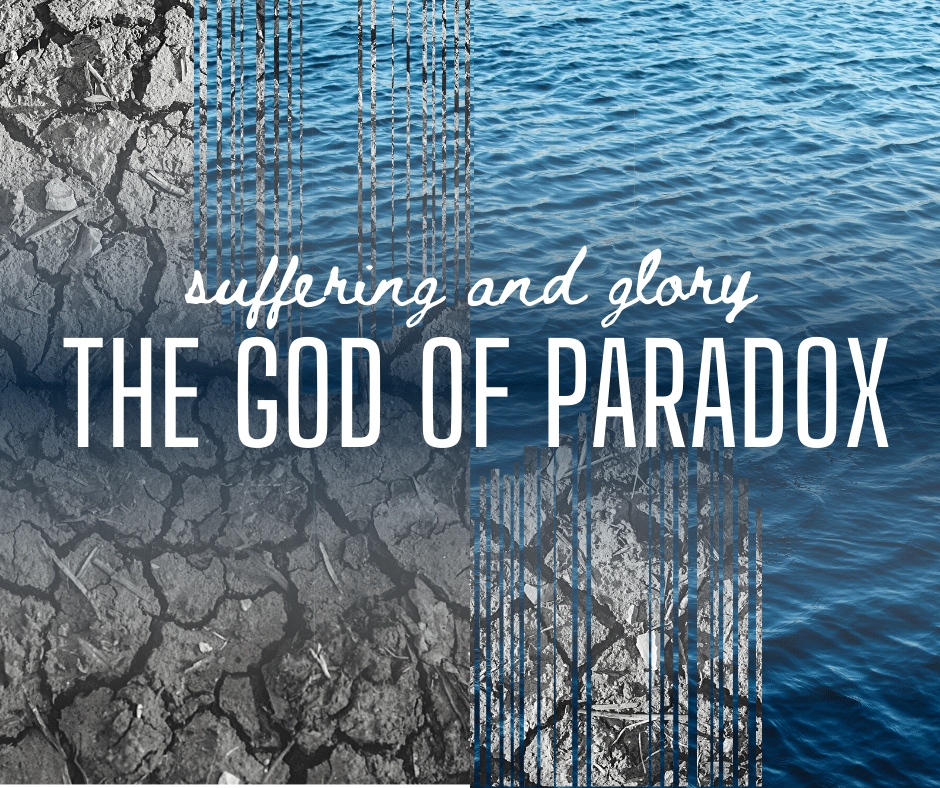Conquering through Defeat: The Strange Victory of Jesus and his People
April 20, 2020 Suffering and Glory: The God of Paradox
He who has an ear, let him hear what the Spirit says to the churches. To the one who conquers I will grant to eat of the tree of life, which is in the paradise of God.’ (Revelation 2:7, ESV)
The book of the Revelation is a strange and confusing book. It combines completely unnatural images: an ox with six wings and full of eyes (4:7), strange comparisons (how can a rainbow be like an emerald?), mysterious objects (censers, bowls, stars), and terrible figures (beasts, horsemen, and horned creatures). While the exact meaning of many parts of the Revelation are not known, there is one thing that is known and certain: Jesus has conquered sin and, as his people, we are invited to share in his victory and receive the gift of eternal life.
When John is taken in the spirit to the throne in heaven, he notices there is a scroll which is sealed. We are not told what it contains. First, someone must open it. But who? Who is worthy of opening a scroll held by the king in his right hand and sealed with 7 seals?
And one of the elders said to me, “Weep no more; behold, the Lion of the tribe of Judah, the Root of David, has conquered, so that he can open the scroll and its seven seals.”
And between the throne and the four living creatures and among the elders I saw a Lamb standing, as though it had been slain, with seven horns and with seven eyes, which are the seven spirits of God sent out into all the earth. (Revelation 5:5–6, ESV)
One approaches the throne who is described as both Lion and Lamb. The Lion of the tribe of Judah, and a Lamb, standing, as though it had been slain. How can this one be both Lion and Lamb? How does this make him worthy?
Lions were, and continue to be, fearsome creatures. They represent power and destruction from which none can save (Hosea 5:14). They are powerful, mighty creatures often used as symbols of a king’s power (1 Kings 10) and of raw strength and cunning. Nations used as instruments of God’s judgement are described as devouring lions. A group of hungry lions was a sure sign of your death. In other words, if you want a conqueror, a lion is what you want.
Lambs, by contrast, are not powerful. They are lowly creatures. They are gullible and weak. They were easily bested by any animal who wanted to eat them. They follow where they are led, even if they are being led to the slaughterhouse. They were traded for food and often used as payment. Their blood was used during Passover as a payment of the sins of the household. Those who tended sheep were not highly favored.
Lions and lambs are quintessential opposites. The lion is the king, sitting at the top of the food chain. The lamb is the least and resides at the bottom.
But here, in front of the throne of heaven, stands one who is both Lion and Lamb. And not just any lamb, but the slain Lamb. One who had been mauled by a foe. This stinks in our noses—we want to affirm what seems most respectable: the Conquering One, is He not a Lion? He is, but yet, the mighty, most fearsome creature on the earth, is also the lowliest, weakest.
Brothers and sisters, we must affirm what Scripture teaches us. It teaches us that Jesus Christ, the Son of God, is both mighty, roaring Lion, and slain Lamb of God. He cannot be one without being the other. In dying for our sins, he swallowed up death forever (Isaiah 25:8). He conquered death through his weakness. This was the plan and it unfolded exactly as the Father intended.
So let us rest in this: Jesus’ power is made perfect in weakness (2 Cor 12:9). And one day we will see his power, perfected, and enjoy it forever.
Write a Comment
Comments for this post have been disabled.